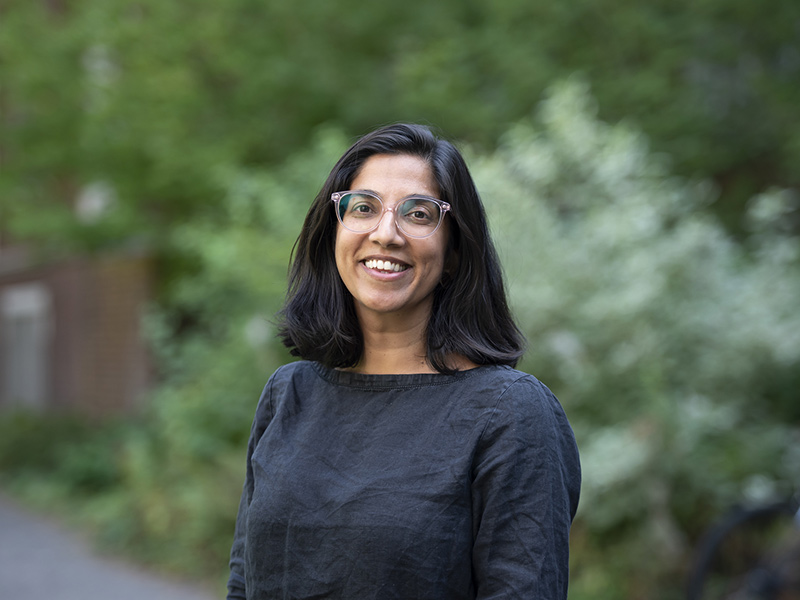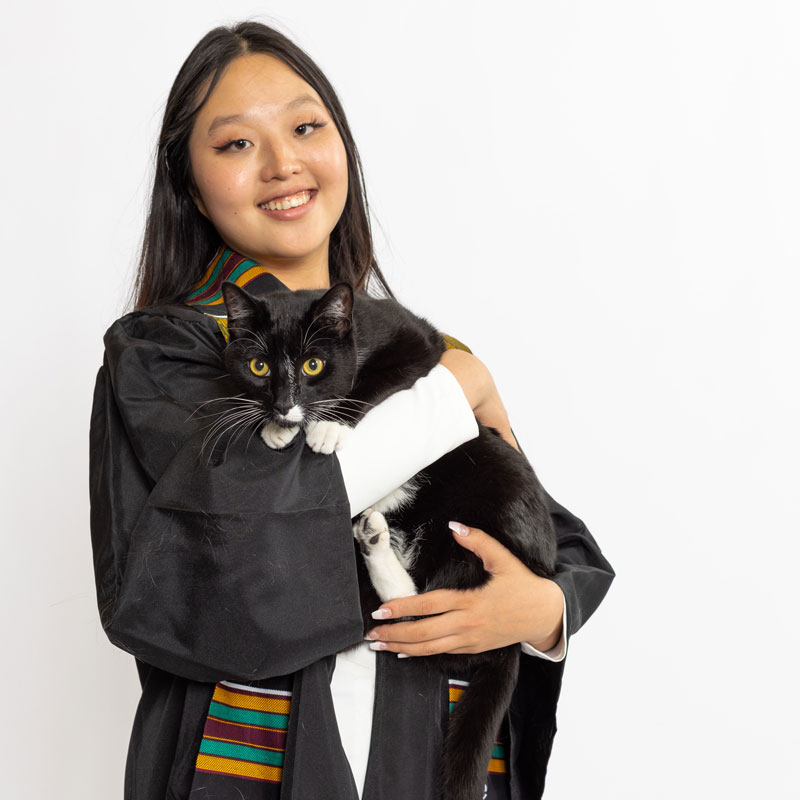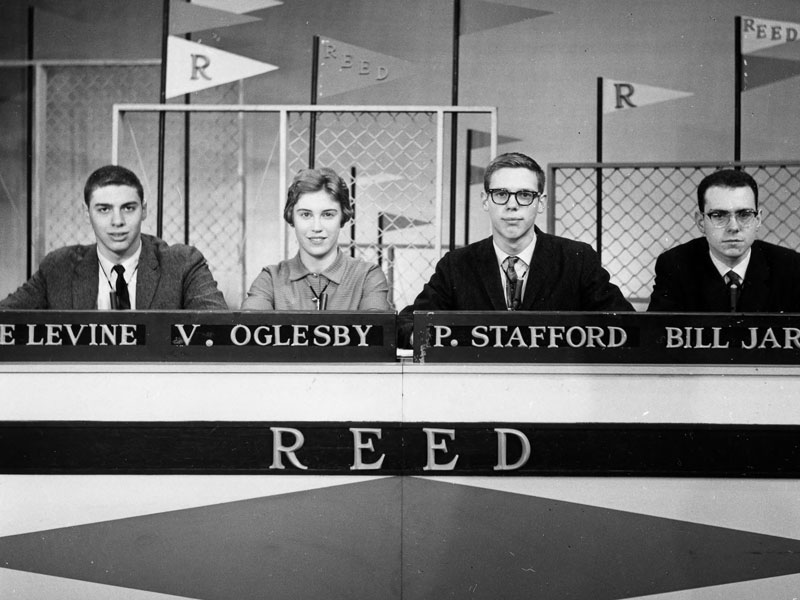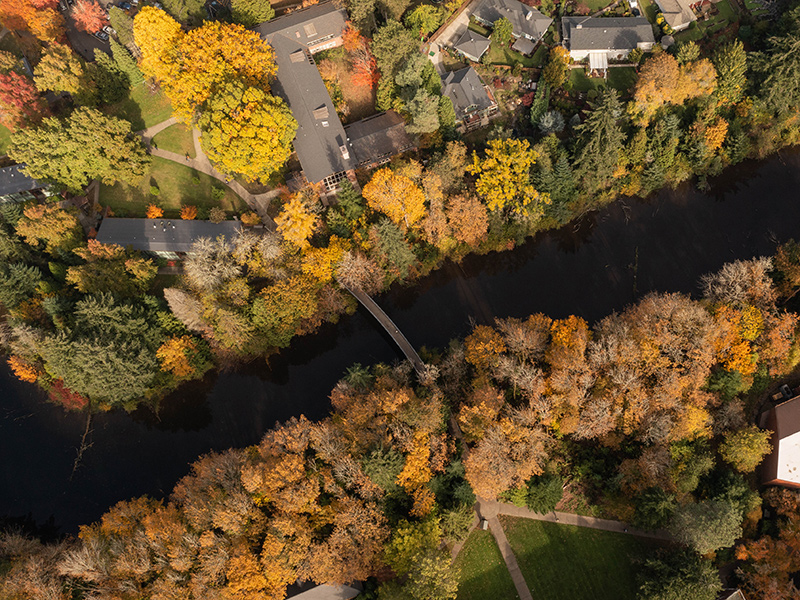Wildlife History in America with Prof. Brian Tyrell made me reassess the idea of conservation. After taking this class, I understand that the health of societies and the environment are inextricably linked, that actions taken for wildlife will inevitably affect people, and that conservation issues must be approached in a socially just way.
What You’ll Study in the Bachelor’s Degree in History
Develop analytical skills that help you uncover the legacy of the past with a history major from Reed College. With guidance from our expert faculty, explore different approaches to and dimensions of history, from social and economic to legal and imperial. Be equipped with critical thinking skills that you can apply to your career or further graduate and professional study.
Roadmap to the BA in History at Reed
Delve into historical sources and critique interpretations of historical events during your four-year journey through the history department. Collaborate with faculty on engaging research projects to foster a deeper understanding of historical inquiry. Expand your horizons with our study abroad programs, and complete your studies by writing a senior thesis.
Year One
Begin Your Studies
In your first year, take introductory history courses in the subjects that fascinate you, such as Anti-Colonial Movements in Africa and the Middle East and World Environmental History. Learn in conference-style classes that go beyond traditional lectures and foster an engaging, creative environment.
In addition, immerse yourself in the revered Reed tradition of Humanities 110. This transformative first-year class enhances your writing prowess and sharpens your critical thinking skills.
Year Two
Broaden Your Thinking
Take additional advanced humanities courses so you can view history in a more interdisciplinary way. Choose from classes that study the impact of the Renaissance, cultural changes from the Enlightenment to the mid-twentieth century, or the development of Chinese civilization.
Many history majors choose to study abroad during sophomore year. We offer exchange programs at the University of Nottingham, Trinity College Dublin, Howard University, and more. If you have foreign language proficiency, you can study in countries such as Argentina, Morocco, and Costa Rica.
Year Three
Develop Research Skills
Our junior seminar trains you to have the analytical and technical skills to conduct your own independent research. This course also prepares you for the junior qualifying examination, which tests your ability to interact with historical material and interpretations and write a research paper.
Find experiential learning opportunities by assisting with faculty projects or through outside options. Reed College and the history department provide funds so you can pursue your academic interests during summer and winter break.
Year Four
Achieve Your Academic Goals
The senior thesis marks the culmination of your academic career at Reed. Build on what you’ve learned over the past three years to research and write about a meaningful historical question.
Enroll in additional classes focusing on your area of interest, such as Labor in Modern Latin America or Race and Oral Histories in the United States. Continue to develop and practice your analytical skills as you study the past.
Why Study History at Reed College?
A Curriculum that Goes Beyond the Basics
Understand the interconnectedness of historical events and recognize how our view of the past evolves with time, perspectives, and new information. Led by Reed's distinguished faculty, our history courses encompass an extensive range of time periods and areas of study. These renowned scholars offer both breadth and depth in their classrooms so you can follow your interests to new findings.
Faculty areas of research include:
- Revolutionary-era France and Europe
- Colonial and revolutionary America
- Middle Eastern and Ottoman history
- U.S. women’s history
- Native American history
- Modern China and Japan
- Latin American history
- History of science
Set Up for Success
Reed ranks number two in colleges and universities that send students to graduate and professional programs in history. Schools most frequently attended by Reed history alumni include the following:
- Columbia University
- Johns Hopkins University
- Lewis & Clark College
- Princeton University
- University of California, Berkeley
- University of California, Los Angeles
- The University of Chicago
- University of Washington
Careers for BA in History Graduates
Equipped with effective critical thinking and communication skills, Reed’s history majors go on to successful careers like the following:
- Assistant professor, University of Louisville
- Attorney, Carmichael & Stanton, LLC
- Director, CEO, and executive communications director, United States Steel Corporation
- Editorial operations manager, Vanity Fair
- Founder and CEO, Democracy Counts!
- Host and reporter, Planet Money, NPR
- Judicial law clerk, United States District Court
- Senior humanitarian advisor, U.S. Department of State
Achievements of History Alumni
Reed history majors and graduates showcase exceptional analytical skills, resulting in numerous prestigious awards and fellowships, including the following:
- Achinoam Bentov ’20, Class of ’21 Award
- Luke Maskarinec ’18, President’s Summer Fellowship
- Isabel Lyndon ’17, President’s Summer Fellowship
- Rennie Meyers ’15, Thomas J. Watson Fellowship
- Jessica Mercado ’11, Fulbright U.S. Student Program
- Kalina Hadzhikova ’15, William T. Lankford III Humanities Award
- Daniel H. Wolf ’82, Thomas J. Watson Fellowship

Our History Department Faculty
Our professors are revered scholars who bring a range of geographic and thematic expertise to their classrooms. They encourage you to cross subfields to form new ideas and make unique connections. Explore their areas of interest so you can join them on their research projects or take inspiration for independent endeavors.





